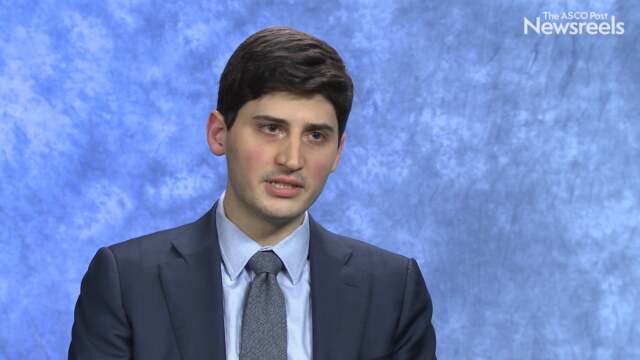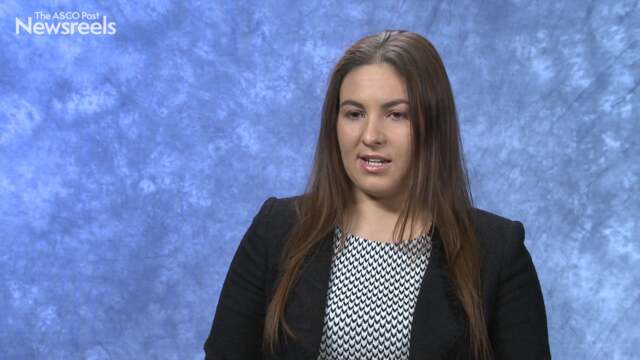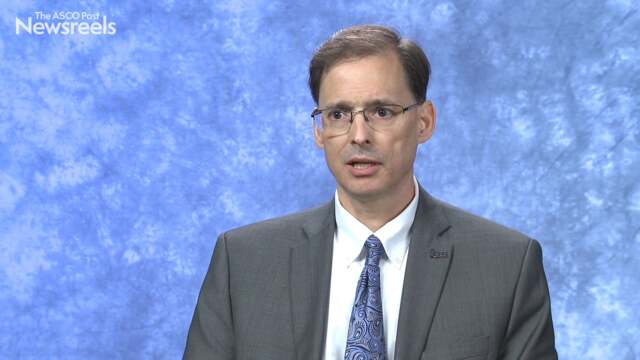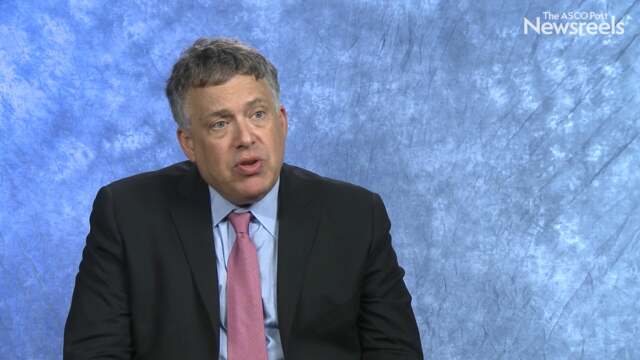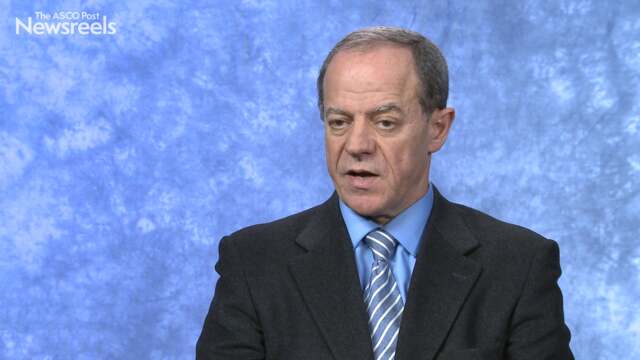Aaron Goodman, MD, on Immune Checkpoint Blockade: Clinical Implications
2018 ASCO-SITC Clinical Immuno-Oncology Symposium
Aaron Goodman, MD, of the University of California, San Diego School of Medicine, discusses an analysis of more than 100,000 patients with cancer for CD274 (PD-L1) amplification and the implications for treatment with immune checkpoint blockade (Abstract 47).
Jeffrey M. Lemons, MD, of the University of Chicago, discusses early safety and efficacy findings from a small study on pembrolizumab and multiorgan-site ablative stereotactic body radiotherapy in patients with advanced solid tumors (Abstract 20).
Kristen Fousek, PhD Candidate at Baylor College of Medicine, discusses her preclinical work on targeting CD19-negative relapsed B-cell acute lymphoblastic leukemia, using CAR T cells that target three antigens simultaneously, a technique that addresses the growing problem of relapse (Abstract 121).
James L. Gulley, MD, PhD, of the National Cancer Institute, discusses combined treatment approaches showing early evidence of clinical activity: agents such as vaccines or PARP inhibitors that can initiate an immune response, paired with agents such as checkpoint inhibitors that can facilitate the activity of tumor-directed immune cells.
Roy S. Herbst, MD, PhD, of the Yale School of Medicine, summarizes a session that included discussion of the mechanisms of immunotherapies, biomarkers for activity of these agents, overcoming resistance, and using treatment combinations.
Joaquim Bellmunt, MD, PhD, of Dana-Farber Cancer Institute, discusses refining treatment choices with new combinations and sequencing strategies.
